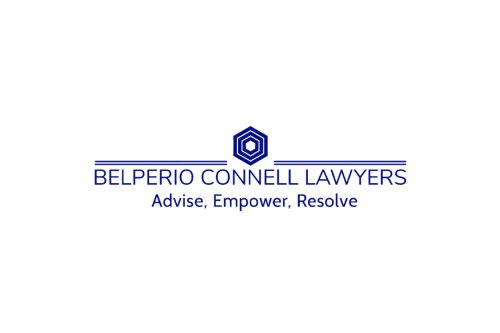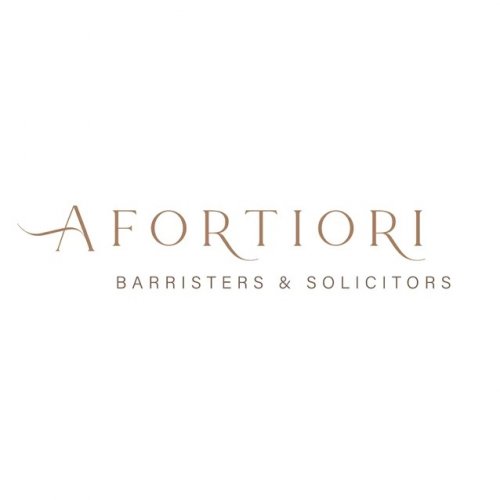Best Private Client Lawyers in Adelaide
Share your needs with us, get contacted by law firms.
Free. Takes 2 min.
List of the best lawyers in Adelaide, Australia
About Private Client Law in Adelaide, Australia
Private Client law in Adelaide involves legal services provided to individuals, families, and business owners to help manage their personal wealth, plan for the future, and protect their interests. This area of law typically covers estate planning, wills, trusts, powers of attorney, guardianship, probate, and succession planning. In Adelaide and throughout South Australia, Private Client lawyers offer guidance tailored to local laws ensuring your personal, financial, and family affairs are managed efficiently and according to your wishes.
Why You May Need a Lawyer
There are several situations where seeking advice from a Private Client lawyer in Adelaide is advisable:
- Drafting or updating a will to ensure your estate is distributed as you wish
- Establishing or managing family trusts and charitable trusts
- Appointing someone to make decisions for you through a power of attorney, especially for medical or financial matters
- Responding to disputes over wills or estates
- Administering the estate of a loved one who has passed away
- Protecting the interests of vulnerable family members who may need guardianship or administration orders
- Managing assets for tax minimisation and succession planning
- Dealing with blended families or complex family arrangements
In each of these cases, a lawyer can provide advice to mitigate risks, navigate legal requirements, and ensure your intentions are clearly documented.
Local Laws Overview
Private Client law in Adelaide is influenced by both South Australian legislation and federal law. Key areas include:
- Wills and Succession Act 1987 (SA): Governs how estates are distributed in South Australia, including requirements for making valid wills and how challenges to wills are handled.
- Powers of Attorney and Advanced Care Directives: South Australian law allows you to appoint others to manage your financial affairs or make medical decisions on your behalf if you lose capacity.
- Trusts: Managed under state and federal laws, trusts are used for asset protection, tax planning, and providing for dependents.
- Family Provision Claims: Certain people can make claims against an estate if they believe they have not received proper provision from a will.
- Probate and Letters of Administration: The Supreme Court of South Australia handles the legal process for proving and administering wills (probate) and for estates with no will (letters of administration).
It is essential to obtain tailored legal advice as these laws are complex and your individual circumstances may significantly impact the best course of action.
Frequently Asked Questions
What happens if I die without a will in Adelaide?
If you die intestate (without a will), your assets will be distributed according to the laws set out in the Wills and Succession Act 1987 (SA). This may not reflect your wishes and can result in delays and disputes among family members.
Can I challenge a will in South Australia?
Yes, certain eligible people including spouses, children, and dependents can challenge a will if they believe they have not received adequate provision. This is known as making a family provision claim.
What is probate and do I always need it?
Probate is the legal process of proving a will and authorising an executor to administer the estate. Not all estates require probate; it depends on the assets involved and whether institutions (like banks) demand it.
What is an enduring power of attorney?
An enduring power of attorney is a legal document where you appoint someone to manage your financial or legal matters if you lose decision-making capacity.
How can I make a legally valid will in Adelaide?
A will must be in writing, signed by you, and witnessed by two people who are not beneficiaries. It is recommended to seek legal advice to avoid errors and ensure your wishes are clear and enforceable.
What is an advance care directive?
An advance care directive lets you appoint others to make medical, health, or personal decisions if you lose capacity. It replaces medical power of attorney and guardianship appointments in South Australia.
Who can be an executor of my will?
You may choose any adult you trust, including a family member, friend, or professional such as a lawyer or accountant. The role involves administering the estate according to your will.
What are the risks of not updating my will?
If your will does not reflect significant life changes such as marriage, divorce, or the birth of children, your estate may not be distributed as intended. Outdated wills can also be more easily challenged.
Can I set up a trust for my children?
Yes, trusts are often established to manage inheritance for children until they reach a certain age or meet specific conditions. A lawyer can help structure the trust to suit your wishes.
How do I deal with assets located outside Australia?
Estate planning with international assets can be complex. Laws in each country may apply and you may need separate wills or legal documents for non-Australian assets. Legal advice is essential in these cases.
Additional Resources
If you need further information or assistance, the following resources may be helpful:
- Public Trustee South Australia: Offers services for will-making, estate administration, and trusts
- Legal Services Commission of South Australia: Provides free legal advice and information on wills, powers of attorney, and estate matters
- Supreme Court of South Australia: Handles probate, letters of administration, and estate disputes
- Office for Ageing Well (SA Health): Guidance on advance care directives and decision-making arrangements
- Australian Taxation Office: Information on tax implications for estates and trusts
Next Steps
If you think you need legal advice or assistance with any aspect of Private Client law in Adelaide, consider the following steps:
- Gather all relevant personal and financial documents, such as existing wills, superannuation statements, property titles, or trust deeds
- Write down your key priorities and concerns, including who should inherit your assets and whom you trust to make decisions if you cannot
- Contact a qualified Private Client lawyer in Adelaide and arrange a consultation
- During your meeting, ask about fees, their experience with similar matters, and what the process will involve
- Regularly review your legal arrangements, especially after significant life events like marriage, divorce, or the birth of grandchildren
Seeking professional legal guidance can ensure your wishes are protected and that your affairs are managed according to South Australian law.
Lawzana helps you find the best lawyers and law firms in Adelaide through a curated and pre-screened list of qualified legal professionals. Our platform offers rankings and detailed profiles of attorneys and law firms, allowing you to compare based on practice areas, including Private Client, experience, and client feedback.
Each profile includes a description of the firm's areas of practice, client reviews, team members and partners, year of establishment, spoken languages, office locations, contact information, social media presence, and any published articles or resources. Most firms on our platform speak English and are experienced in both local and international legal matters.
Get a quote from top-rated law firms in Adelaide, Australia — quickly, securely, and without unnecessary hassle.
Disclaimer:
The information provided on this page is for general informational purposes only and does not constitute legal advice. While we strive to ensure the accuracy and relevance of the content, legal information may change over time, and interpretations of the law can vary. You should always consult with a qualified legal professional for advice specific to your situation.
We disclaim all liability for actions taken or not taken based on the content of this page. If you believe any information is incorrect or outdated, please contact us, and we will review and update it where appropriate.
Browse private client law firms by service in Adelaide, Australia
Adelaide, Australia Attorneys in related practice areas.

















